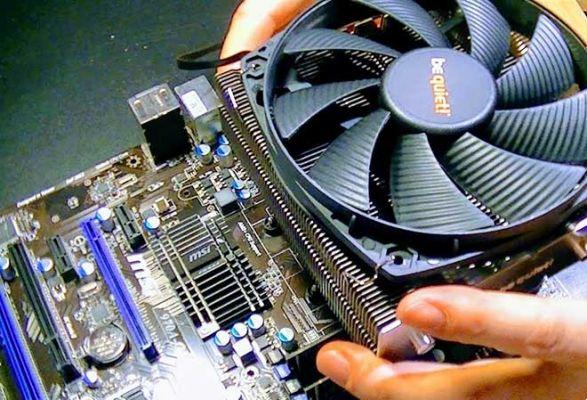
How fix computer fan that makes noise. Repair a noisy fan. As troubleshoot a computer fan that makes noise. A louder fan than usual can be put back in place by following these simple and practical tips.
If your computer fan is rattling, it's probably time to diagnose why your PC sounds like it's in a wind tunnel. It could be a big problem, a little glitch, or something in between. Here are some things you can try to do to fix the problem of a computer fan making noise.
Check what software is running
Before rushing to grab your screwdriver, check what software is currently running, the resources it is using, and if the fan noise is normal. On a Windows computer, press Ctrl + Shift + Esc to bring up the Task Manager and click the More Details button.
If you are on a Mac, press Ctrl + Space and search for Activity Monitor. It can also help you download a program like Core Temp (Windows) or Temp Monitor (Mac) to see if your CPU is overheating.
If you're not doing anything intense at the moment, CPU usage should be low in Task Manager, less than about 20 percent. If your computer is idle and your CPU is at 100 percent of its power, consult the list to see which program is consuming all the power - maybe you have something running in the background that you forgot about, or maybe you got infected. from malware using your PC resources without your knowledge.
If the fan noise only kicks in when you intentionally do something loud, like playing games or converting a large video file, then it's almost normal, maybe it's time to check your CPU.
How to fix computer fan that makes noise?
Okay, your computer doesn't actually "breathe" like a human - Blade Runner hasn't come true yet. But if there is no room for the air to circulate around your PC, it will get hotter than necessary, thus causing the fan to work at its maximum to cool it.
If you are using a laptop, do not place it on a pillow or other plush-like surface as this will block the vents that allow air to flow in and out of the computer. Desks are a much better alternative. If you're using a desktop, for the sake of all things holy, don't cover it with a blanket. Anything that obstructs the flow of air overheats your PC.
Set the fan control
Some PCs run fans at full power all the time, this is especially common if you've built your own PC and haven't done any fine-tuning of the cooling hardware. If your fans are plugged into your computer's motherboard, you may be able to control them using the motherboard's BIOS - you can enter the BIOS menu by pressing a key when your computer starts, typically DEL, F2, or something similar. Then, look for the hardware monitoring section (or something similar).
Each BIOS is slightly different, so we can't walk you through the exact steps - some will only offer basic "high" and "low" fan settings, while others may provide advanced fan curves that allow you to set the fan speed to different CPU temperatures.
Some motherboards can control all attached fans, while others may only be able to control fans that use 4-pin PWM adapters (as opposed to cheaper 3-pin fan models). Fiddle with the fan control settings and see what works for you.
If the BIOS has no fan control options, a program like SpeedFan will also work, but again, only if the motherboard is functionally capable of controlling those fans. For graphics cards, MSI Afterburner can help you adjust the fan behavior when you are in a heavy gaming session.
How to fix computer fan that makes noise? Clean the dust!
Dust is one of those unfortunate inevitabilities when it comes to PCs. Just like blue screens and dead hard drives, you will see it appear at some point. Excess dust means excess heat, which means fans spin faster to keep things cool - and if you smoke or have pets in the house, the problem can get serious.
So grab a screwdriver, open up your desktop or laptop, and give it a good time with an air duster (or an electric duster, if things are really bad).
If your fan is clicking or making other abnormal noises, this is also a good time to make sure the blades aren't hitting a stray power cord or something. Finally, if you have a desktop, consider putting some filters on the suction fans to prevent dust accumulation in the future.
Replace a noisy (or non-functioning) fan entirely
Fixing a noisy computer fan isn't easy, and if none of the above seems to help, it might be time to replace one (or more) of your fans. Sometimes, even if a fan is in good condition, it is too loud.
Smaller fans tend to be louder, so if you have a 90mm fan you can replace it with something larger (or get rid of it altogether without affecting temperatures). If your CPU heatsink is small, just replace it with a larger one. Not only will the larger fan be quieter, but the larger surface area of the fins will dissipate heat more effectively.
You may be able to fix the problem with a drop of sewing machine oil in the bearing, if that doesn't help, it's time to change the fan. With the right fan and a little preventative maintenance next time, you can keep your PC from sounding like a jet engine for a few years.


























